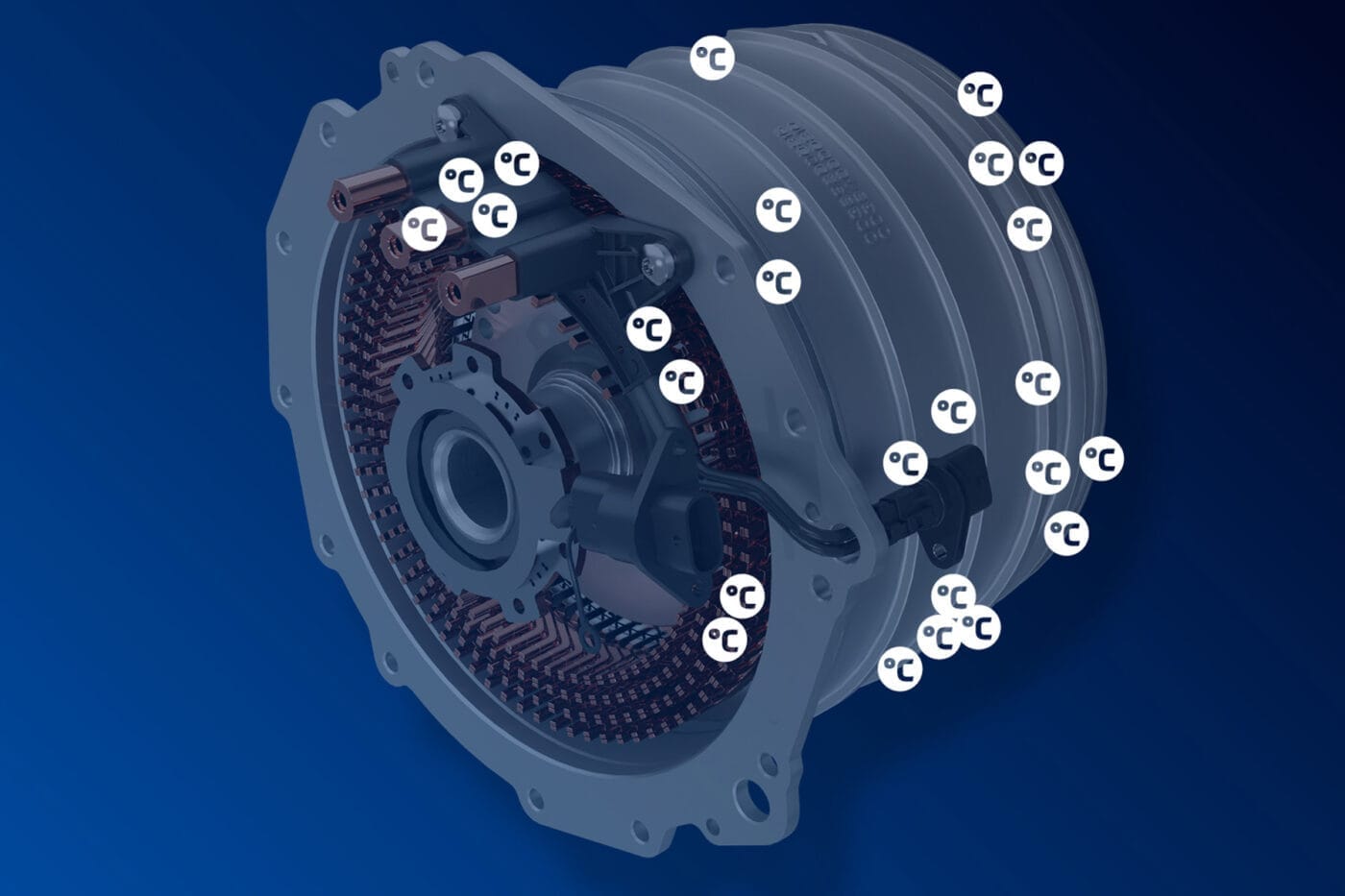ZF deploys AI for temperature monitoring in electric motors
Using a self-learning temperature model, TempAI is said to improve prediction accuracy by over 15 per cent, according to ZF. This enables much more precise thermal utilisation of the electric machine. In other words: “This accurate data allows significantly more power to be extracted from an electric motor.”
The issue is well known in the industry: it is currently impossible to measure temperatures precisely deep inside the electric motor. Without exact knowledge of the true temperature, manufacturers and suppliers have so far taken a conservative approach for safety reasons – none are willing to risk an electric motor failing or being damaged by overheating.
The result has been that cooling systems are sometimes oversized or used more intensively than necessary (leading to slightly higher energy consumption), or additional raw materials have been used to make components more resistant to heat. Alternatively, the theoretical performance reserves of the drive unit simply remain untapped.
While supplier Continental recently presented a novel two-part temperature sensor for permanent magnet synchronous motors to tackle this issue, ZF is taking a different approach that avoids additional hardware.
“TempAI is based on a platform that automatically generates physically based models from measurement data and makes them operational in a very short time. Existing control units are sufficient, as the AI models used require low computing resources,” the German supplier explains. The result is a purely software-based solution without new sensors or control units enables highly cost-efficient series implementation.
By providing more precise temperature forecasts, TempAI allows targeted control up to the thermal operating limit. ZF states that this results in “up to six per cent more peak power and a verifiable increase in efficiency in the WLTP cycle”. In dynamic driving scenarios, energy consumption can be reduced by six to 18 per cent, depending on load point, with a Nürburgring Nordschleife lap cited as an example.
Beyond operational benefits, improved temperature prediction also affects development, offering both ecological and economic advantages. With a clearer understanding of temperatures, thermal design of drives can be optimised, which “allows significant quantities of heavy rare earths to be saved”, ZF says. Development time for thermal design can also be reduces “from several months to just a few days”, as AI helps engineers understand what is happening within the motor.
“This technology enables us to further increase the efficiency and reliability of our drives. At the same time, TempAI demonstrates how data-driven development can be not only faster, but also more sustainable and more powerful,” said Dr. Stefan Sicklinger, Head of AI, Digital Engineering, and Validation in R&D, ZF.
The AI-based technology is ready for series production and is available for ZF’s new generation of electric motors – including the recently presented SELECT drive platform.
“We are proud to bring this innovation into series production and thus making a significant contribution to more efficient e-mobility,” said Otmar Scharrer, Head of Development for Electrified Powertrain Technology. ”TempAI is a real technological breakthrough for the temperature management of electric drives.”





0 Comments